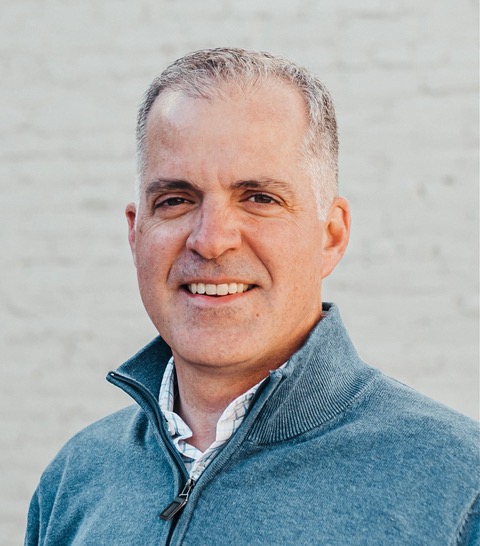
A simple leadership decision by Ezekiel gives us at least three practices that can help us harness the power of a vulnerable pastor.
By Daryl Crouch
“We cannot give what we do not have.”
That’s an often-quoted truth encouraging pastors to nourish their own souls in the Lord before attempting to minister to others. It’s true, but it can also be misleading.
In his letter to the church in Thessalonica, Paul wrote, “We cared so much for you that we were pleased to share with you not only the gospel of God but also our own lives, because you had become dear to us” (1 Thessalonians 2:8, CSB).
As he recounted his bold witness and the suffering he endured, Paul also went to great lengths to describe the way he personally cared for the church. His relationship with them was not merely utilitarian but rooted in sincere love.
Paul wasn’t devoted to a gospel-rich life simply so he could minister to others well and fulfill the Great Commission. Instead, because he was nourished in Christ, his love for others overflowed and the people around him became his dear friends.
Pastors have the same spiritual, emotional, and relational needs as everyone else. We don’t read the Bible so we can teach the Bible. Instead, we read the Bible so we can know God. We don’t pray privately because we’ll be expected to pray publicly. We pray to experience the presence and power of God. Our friendships with people inside and outside the church are not professional assignments. Instead, we love others because Christ first loved us.
We don’t want to be a vulnerable pastor
When the expectations of ministry responsibilities become the primary motivation for our spiritual disciplines, the Bible, prayer, and even relationships become props for our professional advancement rather than fuel for our intimacy with God.
When the expectations of ministry responsibilities become the primary motivation for our spiritual disciplines, they become props for our professional advancement rather than fuel for our intimacy with God. — @darylcrouch Click To TweetJesus confronted the religious leaders of Israel, calling them hypocrites. They were actors playing a part. Who they presented themselves as in public was not who they were in the private places of their own hearts. Jesus exposed their corruption and called them to repent.
Although hypocrisy for sordid gain remains a great temptation for too many religious leaders, perhaps the greater temptation for sincere pastors is caving into the fear of being truly known. We don’t use the props to deceive people, but we often use them to mask our insecurities.
One might hope when God calls us to an important assignment, He would exalt us to a position of power and influence and then seat us above and away from those we serve. We might assume the pastor’s study is something akin to the corporate c-suite, allowing us to do the work of ministry while insulated from the dangers of it. As a famous deodorant commercial from the 1980s told us, “Never let them see you sweat.”
Vulnerability doesn’t seem like a great leadership attribute. But notice one of Ezekiel’s first acts when God called him to a God-sized work through a heavenly vision: “I came to the exiles at Tel-abib, who were living by the Chebar Canal, and I sat there among them stunned for seven days,” (Ezekiel 3:15, CSB).
Ezekiel sat among the exiles.
Pastors are people too. Our calling is great, yet our humanity is profound. Ezekiel’s simple leadership decision gives us at least three practices that can help us harness the power of vulnerability in our own ministries.
1. Sit with people
The modern pastor reads leadership books, attends conferences, and follows social media influencers, which add tremendous value to his work. As pastors, we are driven by an urgency to see lives changed, but the pressure of ministry often accelerates the pace of ministry.
Ezekiel slowed to a complete stop and sat with the people, and there, holy work became human.
When we spend unscripted time among those we serve, we see them as people rather than projects, and they see us as examples to follow rather than experts to exalt. — @darylcrouch Click To TweetWhen we stop, walk slowly in the crowd, and spend unscripted time among those we serve, we see them as people rather than projects, and they see us as examples to follow rather than experts to exalt.
2. Connect with people
Ezekiel was grieved over the spiritual condition of God’s people. He was stunned. But by sitting among the exiles, while living in Babylon, he took on their brokenness with them.
Pastors feel the weight of political division and cultural drift just like everyone else. We experience family challenges. Pastors go through dark nights of the soul.
So, it’s important for us to say so. Weaving nonheroic, personal illustrations into our sermons, having candid moments with our leaders, or sharing honest struggles with a friend over a cup of coffee sanctifies our own souls. Our present, incarnational lives invite members of the congregation to exalt the sufficiency of their Savior above the efficiency of their pastor.
3. Lead with people
When we sit among people and connect with people, we soon discover the joys of leading with them rather than just leading them. Ezekiel’s proximity to the people closed the leadership gap between the task at hand and the people who were impacted by his ministry.
In the New Testament, Peter wrote, “Shepherd God’s flock among you, not overseeing out of compulsion but willingly, as God would have you; not out of greed for money but eagerly; not lording it over those entrusted to you, but being examples to the flock” (1 Peter 5:2-3, CSB).
Disciples are made and multiplied, not by the perfections of our church programming but by proximity to the Holy Spirit’s work in our own lives. — @darylcrouch Click To TweetAs assertive as Peter was, he knew the value of leading “among” the people rather than over them. This “among-ness” pushes us toward becoming a vulnerable pastor. It removes the curtain of professionalism and allows others to see God’s refining process in our own lives. This is how disciples are made and multiplied. It’s not in the perfections of our church programming but in proximity to the Holy Spirit’s work in our own lives.
Craig Groeshel, pastor of Life Church, often says, “People would rather follow someone who is always real rather than someone who is always right.” It’s also true that for people to know we’re real, we must stay right beside them along the way.

Daryl Crouch
Daryl Crouch is the executive director of Everyone’s Wilson, a network of gospel-loving churches working together for the good of the community. Prior to this role, he pastored churches in Texas and Tennessee for 28 years. He and his wife Deborah have four children.







